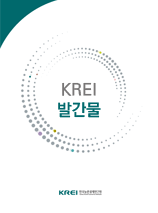
- Implementation Plan and Implications of International Development Cooperation Projects for Agriculture in 2017
-

-
Agriculture-related ODA projects are carried out in various types such as a project, development consulting and invitational training by diverse institutions, including not only the Ministry of Agriculture, Food and Rural Affairs (MAFRA), the Rural Development Administration (RDA) and the Korea Forest Service (KFS), but also the Korea International Cooperation Agency (KOICA) of the Ministry of Foreign Affairs (MOFA), the Economic Development Cooperation Fund (EDCF) of the Ministry of Strategy and Finance (MOSF), the Ministry of the Interior and Safety (MOIS) and local governments.
In 2017, ODA projects by Korea are continuously on the increase; however, the country still fails to meet the demands of the international community to enhance the percentage of multilateral aid and grant.
– In the 2nd Basic Plan on International Development Cooperation, it is recommended to increase the ratio of multilateral aid to 25% or over and grant to 60% or over.
According to the government standards, budget for agriculture, forestry and fisheries is set by less than 10% of the total ODA budget; however, considering the fact that most developing economies highly rely on agriculture and have many populations in rural areas, the size of budget for these sectors should be expanded.
According to the analysis of agriculture-related projects from the implementation plan for 2017, budget of KRW 208.4 billion is appropriated for 207 projects: loan and grant projects by MOSF (EDCF) and MOFA (KOICA) account for 61.6% of the entire budget. The percentage of central government departments regarding agriculture and forestry such as MAFRA, RDA and KFS is 28.7%. As shown in the entire ODA sectors of Korea, the agricultural sector is also led by two government agencies—MOSF and MOFA.
When it comes to the type of ODA, project types are mainly implemented; technical cooperation with small expenditure per case accounts for about 17% based on the size of budget. Further, much effort is concentrated on bilateral aid, which is over 95%. Considering the demands of the international community, it is required to prepare policies in the direction of broadening the scope of multilateral aid.
In terms of projects executed by central government departments related to agriculture and forestry such as MAFRA, RDA and KFS, MAFRA and KFS have a high percentage of project-based ODA, while RDA focuses on carrying out technical cooperation works by utilizing the characteristics as an agricultural R&D institute.
While all of three departments mainly conduct bilateral aid tasks, KFS has implemented many multi-bilateral projects in cooperation with international agencies. As multi-bilateral projects include assessed contributions for international agencies in many cases, it is necessary to inspect closely whether those projects are clearly distinguished from core multilateral projects in accordance with the guidelines by MOFA. -
목차
요약문
Agriculture-related ODA projects are carried out in various types such as a project, development consulting and invitational training by diverse institutions, including not only the Ministry of Agriculture, Food and Rural Affairs (MAFRA), the Rural Development Administration (RDA) and the Korea Forest Service (KFS), but also the Korea International Cooperation Agency (KOICA) of the Ministry of Foreign Affairs (MOFA), the Economic Development Cooperation Fund (EDCF) of the Ministry of Strategy and Finance (MOSF), the Ministry of the Interior and Safety (MOIS) and local governments.
In 2017, ODA projects by Korea are continuously on the increase; however, the country still fails to meet the demands of the international community to enhance the percentage of multilateral aid and grant.
– In the 2nd Basic Plan on International Development Cooperation, it is recommended to increase the ratio of multilateral aid to 25% or over and grant to 60% or over.
According to the government standards, budget for agriculture, forestry and fisheries is set by less than 10% of the total ODA budget; however, considering the fact that most developing economies highly rely on agriculture and have many populations in rural areas, the size of budget for these sectors should be expanded.
According to the analysis of agriculture-related projects from the implementation plan for 2017, budget of KRW 208.4 billion is appropriated for 207 projects: loan and grant projects by MOSF (EDCF) and MOFA (KOICA) account for 61.6% of the entire budget. The percentage of central government departments regarding agriculture and forestry such as MAFRA, RDA and KFS is 28.7%. As shown in the entire ODA sectors of Korea, the agricultural sector is also led by two government agencies—MOSF and MOFA.
When it comes to the type of ODA, project types are mainly implemented; technical cooperation with small expenditure per case accounts for about 17% based on the size of budget. Further, much effort is concentrated on bilateral aid, which is over 95%. Considering the demands of the international community, it is required to prepare policies in the direction of broadening the scope of multilateral aid.
In terms of projects executed by central government departments related to agriculture and forestry such as MAFRA, RDA and KFS, MAFRA and KFS have a high percentage of project-based ODA, while RDA focuses on carrying out technical cooperation works by utilizing the characteristics as an agricultural R&D institute.
While all of three departments mainly conduct bilateral aid tasks, KFS has implemented many multi-bilateral projects in cooperation with international agencies. As multi-bilateral projects include assessed contributions for international agencies in many cases, it is necessary to inspect closely whether those projects are clearly distinguished from core multilateral projects in accordance with the guidelines by MOFA.저자정보
저자에게 문의
구매안내
KREI의 출판물은 판매 대행사 (정부간행물판매센터)와 아래 서점에서 구입 하실 수 있습니다.
판매대행사
- (주)정부간행물판매센터http://www.gpcbooks.co.kr사이트 바로가기
- 서울특별시 중구태평로 1가 25번지
- TEL 02) 394-0337, 734-6818
- FAX 02) 394-0339
판매서점
판매서점 교보문고 http://www.kyobobook.co.kr/ 영풍문고 http://www.ypbooks.co.kr/ 알라딘 http://www.aladin.co.kr/ 활용도 정보
활용도 정보 상세정보 조회 좋아요 다운로드 스크랩 SNS공유 9993 0 19 0 0 -
- Suggestions to Promote the Hometown Love Donation System
- Gouk, Seungyong
- 2022.11.25
- KREI 이슈리포트
-
- Ten Years of Korea-U.S. FTA: focusing on agri-food trade
- Kim, Kyungphil
- 2022.06.09
- KREI 이슈리포트
-
- Impacts of Ukraine-Russia Conflict on Global Grain Prices
- Kim, Jongjin
- 2022.03.31
- KREI 이슈리포트
-
- The Impacts of the COVID-19 on the Korean Agricultural Market
- Seo, Hong-Seok
- 2020.06.05
- KREI 이슈리포트
-
- 10 Agricultural Policy Issues of Korea in 2019
- Jeong, Minkook
- 2019.01.29
- KREI 이슈리포트
-
- State of Korean and Overseas Markets for Environment-Friendly Agricultural Products and Challenges 2018
- Jeong, Hakkyun; Sung, Jaehoon; Lee, Hyeonjeong
- 2018.09.12
- KREI 이슈리포트
-
- Measures to Establish the Water-Energy-Food Nexus for Agricultural Resource Management
- Sung, Jaehoon; Cho, Wonju; Lee, Hyeonjeong
- 2018.09.05
- KREI 이슈리포트
-
- Changes in the Trade of Agricultural and Livestock Products and Implications after Seven Years from the Enforcement of the Korea-EU FTA
- Song, Woojin; Lee, Hyunkeun; Myeong, Suhwan; Yoo, Juyoung
- 2018.06.29
- KREI 이슈리포트
-
- 10 Agricultural Policy Issues of Korea in 2018
- Kim, Byoungryul
- 2018.01.22
- KREI 이슈리포트
-
- Income Changes by Type of Farm Household and Implications
- Woo, Byungjoon
- 2017.11.30
- KREI 이슈리포트
-
- 10 Agricultural Policy Issues of Korea in 2019
- Jeong, Minkook
- 2019.01.29
- KREI 이슈리포트
-
- Income Changes by Type of Farm Household and Implications
- Woo, Byungjoon
- 2017.11.30
- KREI 이슈리포트
-
- 10 Agricultural Policy Issues of Korea in 2018
- Kim, Byoungryul
- 2018.01.22
- KREI 이슈리포트
-
- Job Creation Potential for the Youth and Challenges in the Agricultural Industry
- Ma, Sangjin
- 2017.01.01
- KREI 이슈리포트
-
- 2016 Production Status and Market Prospect of Eco-Friendly Agricultural Products at Home and Abroad
- Jeong, Hakkyun; Lee, Hyejin; Kim, Changgil
- 2016.11.30
- KREI 이슈리포트
-
- The Impacts of the COVID-19 on the Korean Agricultural Market
- Seo, Hong-Seok
- 2020.06.05
- KREI 이슈리포트
-
- Global Spread of Saemaul Undong for Rural Development in Developing Countries
- Heo, Jang; Lee, Yoonjung
- 2016.11.30
- KREI 이슈리포트
-
- Goals and Strategies to Reduce Greenhouse Gas Emissions in the Agriculture Sector
- Jeong, Hakkyun; Kim, Changgil
- 2015.11.03
- KREI 이슈리포트
-
- 70 Years' Achievements and New Challenges of Korean Agriculture and Rural Communities
- Song, Miryung; Moon, Hanpil; Kim, Meebok; Seong, Jooin; Lim, Jieun
- 2015.09.15
- KREI 이슈리포트
-
- Strategy for Creative Economy, and Vitality in Agriculture and Rural District
- Park, Joonki
- 2013.06.18
- KREI 이슈리포트
의견남기기
- 다음글 Fact-checking of Unbalanced Korea-U.S. Trade and Countermeasures in the Agricultural Sector


